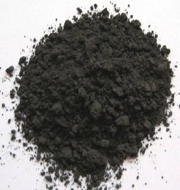Scientists identify world's most heat resistant materials
A team of UK-based researchers have identified Hafnium carbide (HfC) as the world’s most heat resistant material.
It can withstand record melting point temperatures up to 3958°C (approx 4000°C). New Laser-heating techniques were used to find the temperature at which Tantalum carbide (TaC) and HfC melted, both separately and in mixed compositions.
Key Facts
- Hafnium carbide (HfC) and Tantalum carbide (TaC) are refractory ceramicse. they are extraordinarily resistant to heat.
- Researchers found TaC melted at 3,768 degrees Celsius, and HfC melted at 3,958 degrees Celsius. Besides, the mixed compound (Ta0.8Hf0.20C) exceeded its previous recorded melting point.
- These materials at present are mainly used in thermal protection systems on high-speed vehicles and as fuel cladding in the super-heated environments of nuclear reactors.
- This discovery may pave the way for improved heat resistant shielding for the faster-than-ever hypersonic space vehicles. It means that future spacecraft could become more faster than ever.
- Currently hypersonic aircraft travelling above Mach 5 (5 times speed of sound) speed creates very high temperatures as friction is involved when travelling this speed limit.
- This means that these materials will enable spacecraft to withstand the extreme heat generated from leaving and re-entering the atmosphere.
Month: Current Affairs - December, 2016


